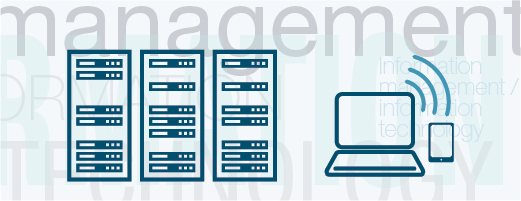Service and digital
Supports the integrated management of service delivery, information and data, information technology, and cyber security in the digital era.
Start with these instruments:
Articulates how Government of Canada organizations manage service delivery, information and data, information technology, and cyber security in the digital era.
The Policy on Service and Digital and supporting instruments serve as an integrated set of rules that articulate how Government of Canada organizations manage service delivery, information and data, information technology, and cyber security in the digital era. Other requirements, including but not limited to, requirements for privacy, official languages and accessibility, also apply to the management of service delivery, information and data, information management and cyber security. Those policies, set out in Section 8, must be applied in conjunction with the Policy on Service and Digital. The Policy on Service and Digital focuses on the client, ensuring proactive consideration at the design stage of key requirements of these functions in the development of operations and services. It establishes an enterprise-wide, integrated approach to governance, planning and management. Overall, the Policy on Service and Digital advances the delivery of services and the effectiveness of government operations through the strategic management of government information and data and leveraging of information technology, supporting the mandate of the Minister for Digital Government in leading the Government of Canada’s digital transition. The management of these functions is guided by a commitment to the guiding principles and best practices of the Government of Canada Digital Standards: design with users; iterate and improve frequently; work in the open by default; use open standards and solutions; address security and privacy risks; build in accessible from the start; empower staff to deliver better services; be good data stewards; design ethical services; collaborate widely.
Policy sub-topics:
Information management
Supports stewardship and interoperability of information by ensuring that departments and agencies access, use and share geospatial data efficiently and effectively in order to support program and service delivery.
Promotes information management practices that enable the proactive and ongoing release of government information.
Ensures the uniform application of a high level of web accessibility across Government of Canada websites and web applications.
Improves Canadians’ web experience by using technologies that support mobile devices and by making information technology easier to use in order to find government information.
Describes the usability requirements for Government of Canada websites, including requirements for domain names, terms, conditions and archiving online web content, as well as common page layouts and visual design elements.
Service
Provides managers and executives with an overview of the key concepts and steps in establishing service agreements, including the definition of a service relationship and its integration into a service agreement.
Provides suggested steps for defining a service agreement. It also identifies key considerations when building a service relationship, examines the types of service agreements and the situations to which they are best used, and takes a closer look at the specific elements that should be considered when developing a service agreement.
Service and digital
Articulates how Government of Canada organizations manage service delivery, information and data, information technology, and cyber security in the digital era.
The Policy on Service and Digital and supporting instruments serve as an integrated set of rules that articulate how Government of Canada organizations manage service delivery, information and data, information technology, and cyber security in the digital era. Other requirements, including but not limited to, requirements for privacy, official languages and accessibility, also apply to the management of service delivery, information and data, information management and cyber security. Those policies, set out in Section 8, must be applied in conjunction with the Policy on Service and Digital. The Policy on Service and Digital focuses on the client, ensuring proactive consideration at the design stage of key requirements of these functions in the development of operations and services. It establishes an enterprise-wide, integrated approach to governance, planning and management. Overall, the Policy on Service and Digital advances the delivery of services and the effectiveness of government operations through the strategic management of government information and data and leveraging of information technology, supporting the mandate of the Minister for Digital Government in leading the Government of Canada’s digital transition. The management of these functions is guided by a commitment to the guiding principles and best practices of the Government of Canada Digital Standards: design with users; iterate and improve frequently; work in the open by default; use open standards and solutions; address security and privacy risks; build in accessible from the start; empower staff to deliver better services; be good data stewards; design ethical services; collaborate widely.
